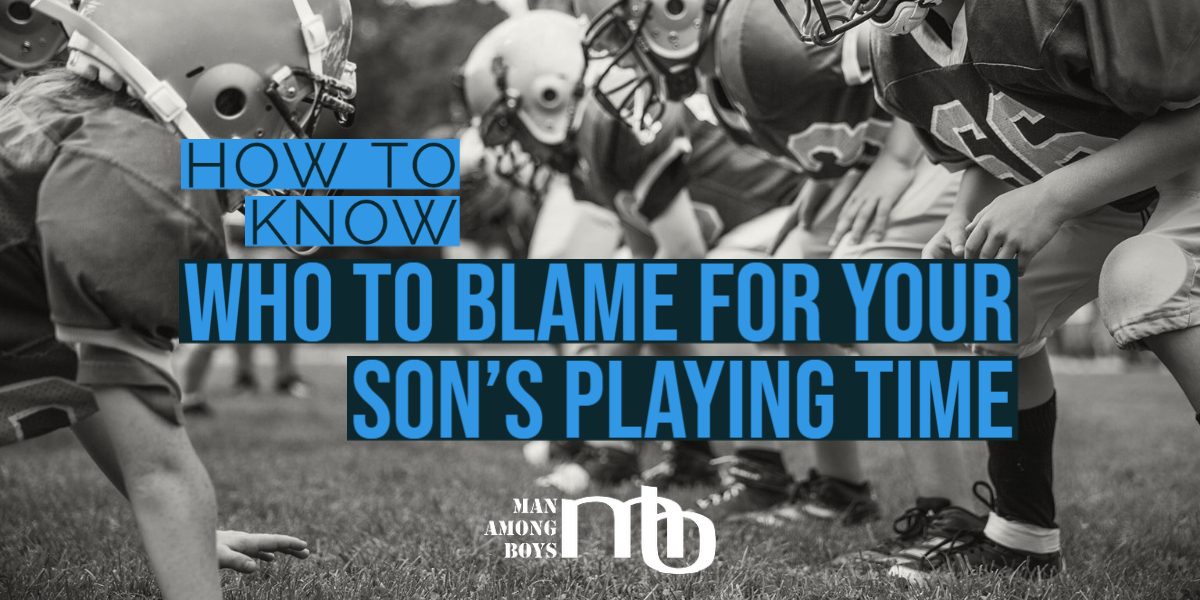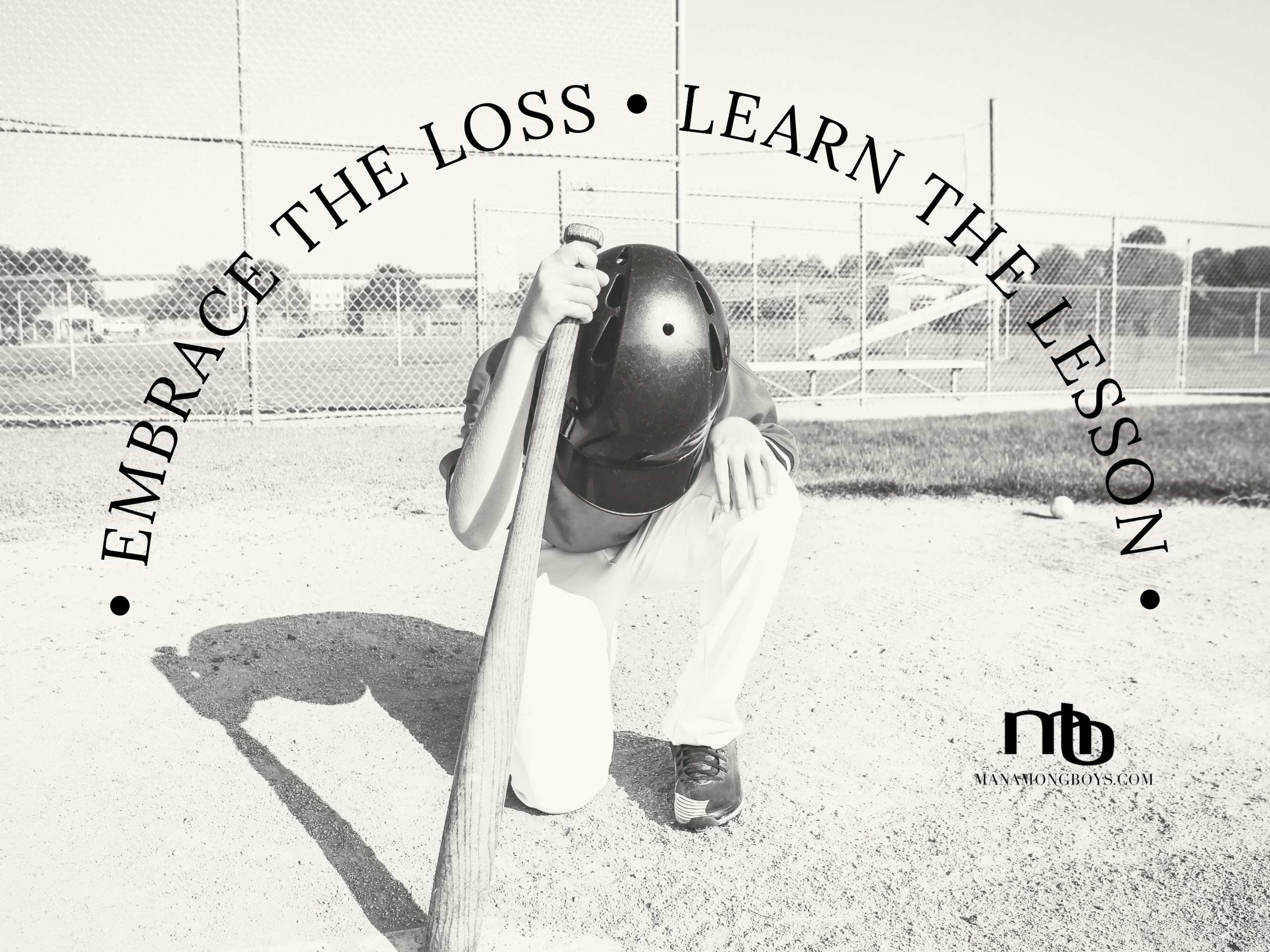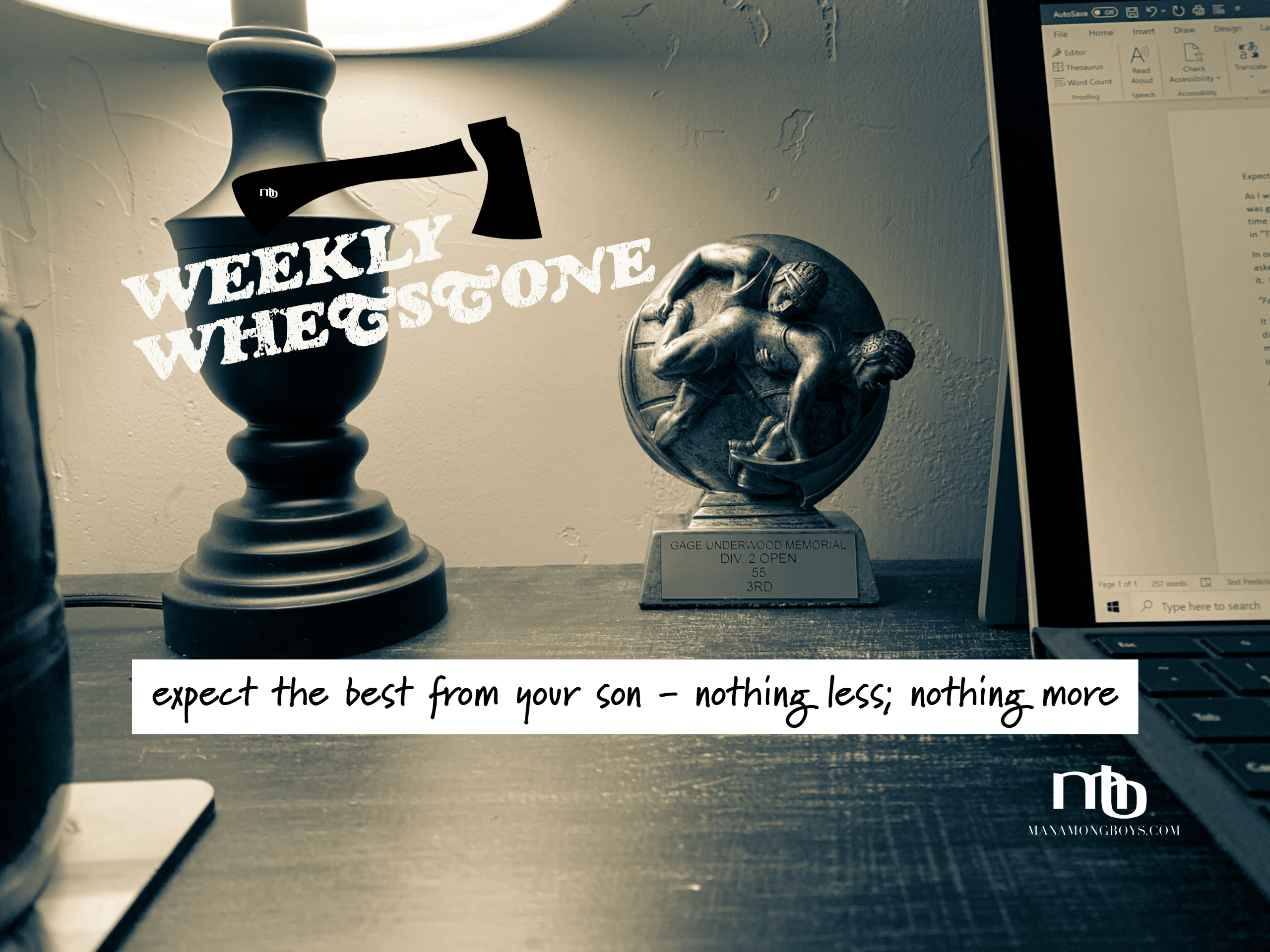Several years back, a friend of my wife’s enthusiastically told her how her husband ripped into their son’s elementary football coach. She described in detail how he marched right up to him at practice and let him have it. After my wife finished telling me this story, I asked, “Why did she tell you this? Was she proud of her husband or something?” I then said, “I would’ve been proud of him if he would have taught his son how to work harder and overcome adversity.” I know more details than what I am sharing here, but do you think the dad was wrong or right in this situation?
Let’s use another scenario. Your son is a youth baseball player (this can translate to any sport, academics, music, hobbies, or whatever else your son is involved in). He is playing in a non-competitive recreational league. He mostly sits the bench during the games, except for occasionally seeing right field for an inning. What do you do as a dad? Do you ream the coach? Do you patiently wait through the season to see what happens? This is something that most parents deal with in some capacity, and it is important to get it right. Before we lose our cool, its important to go to a second level of questions.
Ask yourself these questions:
- Do I attend practice when I have the opportunity?
- Does my son attend all practices?
- Do we get him there on time and prepared?
- Does my son pay attention at practice? Is he goofing off…distracting others…playing with grasshoppers?
- Is my son always asking the coach to come out?
- Is the coach investing in my son, despite his abilities, and using practice to help him improve?
- Has the coach tried to make a meaningful personal connection with my son?
- Has the coach created a healthy atmosphere of both discipline and fun?
If you cannot answer all these questions, then I do not recommend getting in the coach’s face as your first step. I mean, unless your son’s coach is an obvious flat out jerk then don’t start here. This is for two reasons:
1. You may be embarrassed by what the coach has to share with you about your son, basically answering the questions above for you.
2. You are taking a risk of making your son a victim and shielding him from the opportunity of learning this lesson of patience, being a teammate, and the important life skill of pushing himself (flipping the switch).
Of course, there are some dads volunteering for the wrong reasons. But we have wrongly accused the majority of this instead of finding out what is really going on. There are several factors.
- It could be that we have not invested enough time in answering the above questions.
- We could have unrealistic perceptions of our son’s level of ability.
- The coach may be doing the best he can but needs help.
He may have just been the only parent willing to step up so these kids could have a team. For many dads, they are just willing bodies with a great heart to serve but with little expertise. I have coached with several youth coaches that have never played the sport, but they are quick learners and excellent leaders with the kids.
I know that what I am writing about is unpopular. But I have seen the fruit, whether good or bad, of how these boys turn out as older teens. I have been a high school athletic director and have coached at every level; high school, junior high, and elementary. Parents consistently shielding their boys from adversity is a major hindrance in their development. If a coach is harming a boy in some way, shaming him in front of his peers, or using physical means or profanity to intimidate him, then yes, go sic’ em. In fact, you may have to wait in line behind me. But, if it is truly about playing time, then please go through the above questions first, then determine whether this is a vital life skill your son needs to learn or if you really do need to schedule a meeting with the coach.
Having Fun
You may be asking, well aren’t all the kids supposed to be having fun? Yes, they are supposed to be, and especially at the early youth age. It is important to give all the kids playing time, but I have a son who when he was younger was just fine with his one or two innings in right field. If frustrated the heck out of me. But when he got a little older this started to bother him. When he came to me to complain, he was taken aback when I said, “So what are YOU going to do about it?” He got the point. And a great lesson was learned in that moment. He understood that a spot on the field would be earned by him, not by his dad. It takes patience as a parent but now that I watch him bust his rear for his playing time or that starting position, I know he will be a better man for it. When he is a man, husband, father, leader, employee, etc, he will understand how to take responsibility, shuck the victim mentality, do hard things, and step up for himself and those around him.
Equal Playing Time
I never believed that my kid, sitting down at practice, dragging his feet to even go to practice, and causing the coach some issues deserved equal game reps as a kid who enthusiastically hustled, did everything the coach asked, and even worked drills at home by himself. On the other hand, I have also been on that other side of that scenario where my kid was doing all the right things, was coachable, hustled, cheered his teammates on and was not rewarded with playing time. That is not right either. At this early age, regardless of talent, a kid should be rewarded with some good playing time. So, lets’ talk about the role of a youth coach.
Winning Mindset
Teaching boys a winning mindset is important but at the youth level, the coach should really assess why it is important. Are they teaching them to win because that is what is important for a young boy to understand in his journey toward manhood, or to scale it down it a bit, to be the best (fill in the blank) player he can be? Here is another unpopular opinion, but I believe that winning is not the most important. Here is my youth sports coaching philosophy:
- Have Fun. Nothing that you teach them matters, including winning, if they do not want to play next year. The number one job of a youth coach is to make the kids excited to play again next season.
- Develop and grow these habits and skills: discipline, teamwork, sportsmanship, perseverance, leadership. These are life skills that translate into all other areas of their lives, for the rest of their lives. A couple of years ago, I had the great honor of speaking at my youth coach’s funeral service. I shared how after all these years, we boys…now men, were still living out these traits that he instilled in us. We won games but winning never entered my mind as I prepared to speak at his service.
- Develop the necessary skills for the game starting with technique and fundamentals. This one must be taught on day one, and then drilled every single practice for the rest of the season. All three of these are crucial. Most of your time will be spent on #3 but you cannot skip #1 and #2. If you do your job correctly, #1 and #2 will happen by default.
- Winning









